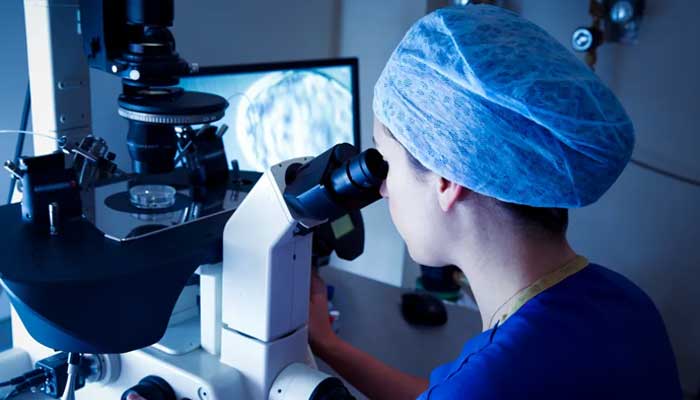
Artificial intelligence (AI) is providing hope to people who struggle with pregnancy with little resources.
Doctors have used AI to match the strongest sperm with the best quality eggs to help in the pregnancy of women through IVF.
The first woman in the UK to conceive using this state-of-the-art procedure throughout the fertilisation process has described it as a 'miracle'.
Leading consultant Mr. Ali Al Chami, from Fertility Clinic in North London shared his views on the treatment, noting, "This is a game-changer for fertility care."
In UK, one in six couples experience infertility and more than 50,000 patients undergo IVF every year, with the number rising annually.
Along with that only one in three women get pregnant after the first cycle, which on average cost more than $5000.
Normally doctors study the health of sperms and eggs under microscope to determine their health which further helps in their selection.
AI systems, trained on vast data sets of ultrasound images, time-lapse embryo monitoring and patient health metrics, are now being used in some clinics to select high-quality sperm by studying their movement with more accuracy and in real time.
Dr. Jyoti Taneja, medical director of Avenues Fertility Clinic also shared, "We also use AI to give us a meticulous evaluation of eggs. This can include egg, maturity, shape and size."
First successful case in UK
Elena, from South London told the Sunday Express she has become the first woman in the UK to conceive using AI throughout the whole process.
Now 23 weeks pregnant, the 36-year-old credits the advanced technology for changing her life.
After the selection of sperm from her husband, the fertilised embryos with the greatest chance of survival were also chosen by AI before being transplanted into her womb.
The soon-to-be-mother revealed, "What has happened is phenomenal. The tech is incredible. It is like a miracle."
AI technology is rapidly marking its position in IVF treatment with experts sharing that in five years all clinics will adopt this integration of advancement.















